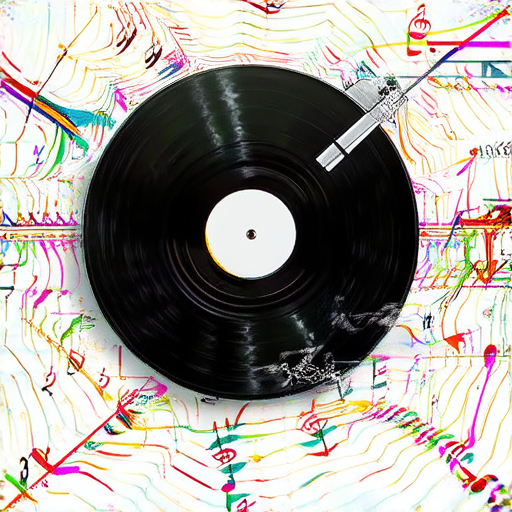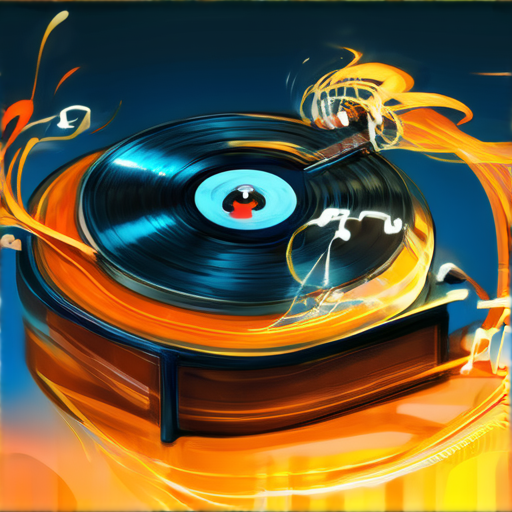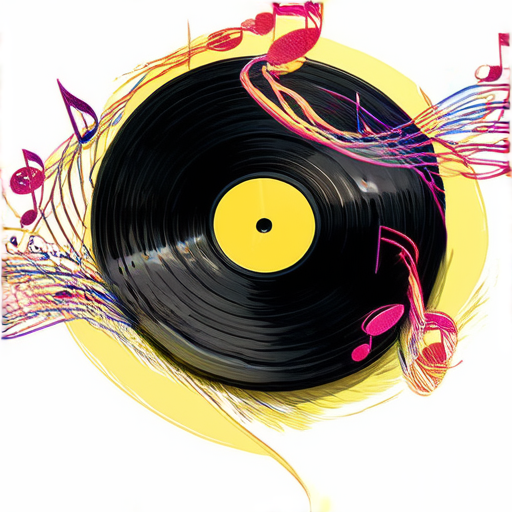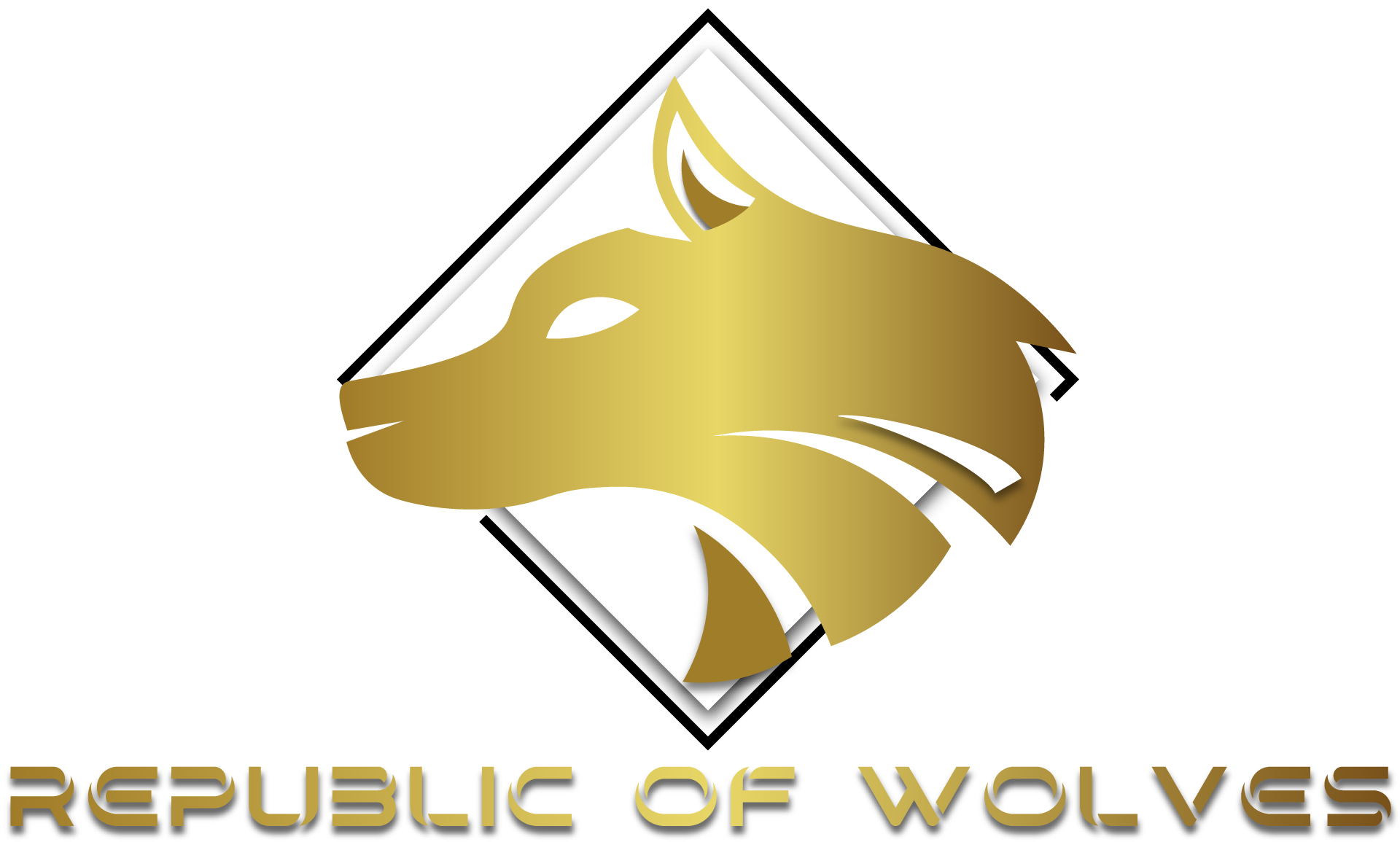As the ever-evolving music industry continues to captivate audiences worldwide, creating a thriving music blog has become an essential tool for musicians, music enthusiasts, and industry professionals alike. With the rise of digital platforms, music blogs have emerged as a vital means of sharing music discoveries, artist spotlights, and industry insights. But what sets a successful music blog apart from the rest? In this comprehensive guide, we’ll delve into the world of music blogging, exploring the benefits, best practices, and strategies for creating a thriving music blog that resonates with your target audience.
Whether you’re a seasoned musician looking to expand your online presence or a music enthusiast seeking to share your passion with others, understanding the ins and outs of music blogging is crucial for success. From crafting engaging content to leveraging social media and email marketing, we’ll provide you with actionable tips and expert advice to help you navigate the complex landscape of modern music blogging.
By the end of this article, you’ll gain a deeper understanding of the role of music blogs in the modern music industry, how to create a music blog that attracts and engages audiences, and the essential tools and strategies needed to drive traffic, generate revenue, and build a loyal community around your music blog.

Creating a Music Blog: A Comprehensive Guide
Starting a music blog can be an exciting venture for music enthusiasts and bloggers alike. With millions of people worldwide sharing their love for music through various platforms, creating a dedicated space to share reviews, interviews, and news about your favorite artists can help you connect with like-minded individuals and establish yourself as a credible voice in the music community.
Step 1: Define Your Niche
Identify the type of music you want to focus on, whether it’s indie rock, electronic dance music, or hip-hop. Having a clear niche helps attract a targeted audience interested in the same genre, making it easier to promote your blog and engage with readers.
Indie Music Magazine offers valuable insights into the world of independent music, covering topics such as emerging artists, festival coverage, and industry trends.
Step 2: Choose a Platform
Select a suitable blogging platform that suits your needs, such as WordPress, Blogger, or Medium. Consider factors like customization options, ease of use, and integration with social media platforms when making your decision.
WordPress is a popular choice among music bloggers due to its flexibility and extensive library of customizable themes.
Step 3: Register a Domain Name
Register a unique and memorable domain name that reflects your blog’s identity. This will help establish your brand and make it easier for readers to find your site.
For example, republicofwolves.com is a great domain name for a music blog, conveying a sense of exclusivity and expertise in the field.
Step 4: Set Up Social Media Accounts
Create profiles on popular social media platforms, such as Instagram, Facebook, and Twitter, to promote your blog and engage with your audience. Share updates, behind-the-scenes content, and exclusive material to build a loyal following.
Instagram is particularly effective for visual storytelling, allowing you to showcase your favorite artists, share concert photos, and create engaging content that resonates with your audience.
Step 5: Develop a Content Strategy
Plan your content in advance, considering topics like artist spotlights, album reviews, concert coverage, and interviews. Create a content calendar to ensure consistency and organization.
A well-planned content strategy will help you establish your authority in the music industry, attract a loyal following, and drive traffic to your blog.
Step 6: Design a Visually Appealing Site
Invest time and effort into designing a visually appealing website that showcases your personality and style. Incorporate high-quality images, logos, and graphics to enhance user experience.
A professional-looking website will help establish credibility and trust with your audience, setting you apart from other music bloggers.
Step 7: Optimize for SEO
Improve your blog’s search engine ranking by incorporating relevant keywords, meta descriptions, and optimizing images. Utilize tools like Google Analytics and SEMrush to track your progress and adjust your strategy accordingly.
SEO optimization is crucial for increasing visibility and driving organic traffic to your blog, helping you reach a wider audience and establish your authority in the music industry.
Step 8: Engage with the Music Community
Participate in online forums, attend concerts, and collaborate with other music bloggers to network and build relationships within the industry. This can lead to exclusive opportunities, interviews, and promotions.
Networking and building relationships within the music community can open doors to new opportunities, help you stay informed about industry trends, and foster a loyal following.
Step 9: Stay Up-to-Date with Industry Trends
Regularly update your knowledge on the latest music releases, trends, and news. Attend festivals, concerts, and workshops to stay informed and inspired.
Staying up-to-date with industry trends is essential for remaining relevant and competitive in the music industry, helping you identify emerging artists and trends before they become mainstream.
Step 10: Consistency is Key
Maintain a consistent posting schedule to keep your audience engaged and coming back for more. Regular updates demonstrate your commitment to your blog and its community.
Consistency is crucial for building trust and loyalty with your audience, helping you establish a strong reputation in the music industry and drive long-term growth for your blog.
The Evolution of Music Blogs
Are Music Blogs Still a Thing?
The music blog landscape has undergone significant changes since its inception in the early 2000s.
While traditional music blogs may have declined in popularity, alternative platforms and formats have emerged to fill the void.
Shift to Visual Platforms
With the rise of social media, YouTube, and Instagram, music enthusiasts now consume music-related content through visual mediums rather than written articles.
Many music bloggers have transitioned to creating video content, sharing behind-the-scenes glimpses into artist lives, and offering exclusive interviews.
This shift towards visual platforms has enabled music bloggers to reach a wider audience and engage with fans in new ways.
YouTube has become a popular platform for music bloggers to share their content, with many creators building large followings and collaborating with artists.
Podcasts and Audio Content
Podcasts have become increasingly popular, allowing music fans to engage with artists and industry professionals through audio content.
Music-focused podcasts often feature in-depth discussions, reviews, and analysis, catering to a niche audience seeking more immersive experiences.
Some notable podcasts in the music industry include NPR’s All Songs Considered and KCRW’s Take This Podcast.
Community-Driven Platforms
Online forums like Reddit’s r/LetsTalkMusic continue to thrive, fostering communities centered around shared interests.
These platforms enable users to discuss music, share recommendations, and connect with like-minded individuals.
Reddit’s r/LetsTalkMusic is a prime example of a community-driven platform, with thousands of members discussing everything from new releases to classic albums.
Niche-Specific Blogs
Despite the decline of general-interest music blogs, specialized sites focusing on specific genres, subcultures, or geographic regions have gained traction.
These niche blogs cater to dedicated audiences seeking targeted content and expertise.
A great example of a niche-specific blog is Pitchfork, which focuses on indie rock and electronic music.
Evolution of Content Formats
Traditional music blogs have adapted to changing reader habits by incorporating multimedia elements, such as videos, podcasts, and infographics.
This diversification helps maintain engagement and attracts new readers.
Some music bloggers have also experimented with virtual reality (VR) and augmented reality (AR) content, offering immersive experiences for fans.
Collaborations and Partnerships
Music bloggers have formed partnerships with record labels, management companies, and other industry stakeholders to create exclusive content, promote emerging artists, and stay ahead of the curve.
These collaborations often result in unique and innovative content, showcasing the best of both worlds.
A notable example of a collaboration between a music blogger and a record label is Soul Seekerz‘ partnership with Mad Decent.
Citation Sources
Research suggests that music blogs play a crucial role in shaping public opinion and influencing consumer behavior.
By citing reputable sources, music bloggers can establish credibility and trust with their audience.
A study by David Hesmondhalgh found that music blogs have a significant impact on shaping cultural attitudes and behaviors.
Industry Trends and Insights
According to a report by the International Federation of the Phonographic Industry (IFPI), online music consumption continues to grow, with streaming services driving the majority of growth.
Music bloggers must stay informed about these trends to remain relevant and provide valuable insights to their audience.
The IFPI report highlights the importance of staying up-to-date with industry trends and developments.

Monetizing a Creative Music Blog
As a creative music blogger, it’s essential to understand how to monetize your platform effectively. With the rise of social media and online content creation, music blogs have become a vital part of the music industry ecosystem.
Can Music Blogs Make Money?
A study by Influencer Marketing Hub found that the average influencer in the music niche earns around $400 per post. However, successful music bloggers can earn significantly more, especially those with large followings or high engagement rates.
- Display ads on the website, such as banner ads, pop-ups, or sponsored content
- Partner with online music stores like iTunes, Spotify, or Amazon Music, and earn commissions by promoting their services or products
- Collaborate with record labels, artists, or brands to create sponsored posts, reviews, or interviews
- Offer exclusive content, early access, or behind-the-scenes material to loyal readers who pay a monthly fee
- Sell branded merchandise, such as t-shirts, stickers, or posters, to fans who visit the website
- Leverage expertise in music blogging to offer consulting or coaching services to aspiring bloggers or small businesses
- Create podcasts or video series focused on music-related topics and monetize them through sponsorships, ads, or listener support
- Collect data on user engagement and sell insights to record labels, artists, or music industry professionals
- Develop and sell digital products, such as e-books, courses, or software related to music blogging or promotion
- Establish relationships with other music industry professionals, influencers, or brands to create mutually beneficial opportunities
In conclusion, music blogs can generate revenue through various channels, and successful bloggers can leverage these opportunities to build sustainable businesses.

Key Strategies for Finding Music Blogs to Submit To
Discovering the right music blogs to submit your work can significantly boost your online presence and help you reach a wider audience.
Music Blog Directories
- AllMusic: A comprehensive directory of music blogs, featuring over 10,000 blogs across various genres.
- Blogarama: A blog directory that allows users to search for music blogs based on genre, location, and more.
- Music Blog Directory: A dedicated directory of music blogs, updated regularly with new submissions.
Social Media and Online Communities
Joining social media groups and online communities can help you connect with music bloggers and influencers in your genre.
- Facebook Groups: Join groups focused on music bloggers, music promotion, or specific genres to connect with potential submission targets.
- Twitter Chats: Participate in music-related Twitter chats to network with bloggers and influencers.
- Reddit: Engage with music communities on subreddits like r/musicbloggers, r/WeAreTheMusicMakers, and r/MusicPromotion.
Genre-Specific Websites and Forums
Genre-specific websites and forums often feature music blogs and offer opportunities for submissions.
- Pitchfork (indie rock): A popular music blog that frequently features emerging artists.
- Stereogum (indie pop): A well-established music blog that showcases a wide range of indie and alternative music.
- NME (rock music): A leading music publication that features news, reviews, and interviews with top artists.
Music Industry Events and Conferences
Attending music industry events and conferences can help you network with industry professionals and discover new blogs.
- SXSW: A premier music festival and conference that brings together music industry professionals and emerging artists.
- CMJ Music Marathon: A annual music festival and conference that showcases new and emerging artists.
- The Music Bloggers Conference: A conference specifically for music bloggers and influencers to network and learn about the latest industry trends.
Online Research Tools
Utilizing online research tools can help you find music blogs and identify potential submission targets.
- Google Search: Use advanced search operators like site:, filetype:, and intitle: to find music blogs and identify potential submission targets.
- BuzzStream: A tool that helps researchers find and contact influencers, including music bloggers.
Reach Out to Established Music Bloggers
Researching established music bloggers and influencers in your genre and reaching out to them directly can lead to potential submission opportunities.
- Personalize your outreach and highlight why your work would be a good fit for their blog.
Monitor Music Blog Features and Reviews
Keeping track of music blogs that frequently feature artists similar to yours or review music within your genre can help you identify potential submission targets.
- Reach out to these bloggers when they publish reviews or features related to your music.
**Finding a Music Niche**
Discovering a music niche is crucial for independent artists looking to establish themselves in the music industry. A well-defined niche helps differentiate your music from others, attracting a dedicated fan base and increasing your chances of success.
**Step 1: Identify Your Genres**
Start by specifying which genres your music falls into. Consider factors such as instrumentation, tempo, mood, and style. Research popular sub-genres within your chosen genre to gain insight into what resonates with audiences. For example, if you’re a singer-songwriter, you might explore folk-pop or indie-folk niches.
Learn More About Indie Music Genres
**Step 2: Develop an Artist Identity**
Create a unique persona that reflects your artistic vision and values. This includes your brand name, logo, and visual aesthetic. Consistency across all platforms is essential to building recognition and trust with potential fans. Develop a distinctive sound, style, and message that sets you apart from other artists.
Discover How to Create a Strong Artist Identity
**Step 3: Explore Online and Physical Spaces**
Engage with various online communities, social media platforms, and local music scenes to connect with people who share similar interests. Attend concerts, festivals, and workshops to network with fellow musicians, promoters, and industry professionals. Join online forums, groups, and social media groups related to your genre to stay updated on industry trends and best practices.
Stay Connected with the Music Scene
**Step 4: Analyze Competitors and Market Trends**
Study successful artists within your desired niche, analyzing their strengths, weaknesses, and marketing strategies. Identify gaps in the market and opportunities to innovate and differentiate yourself. Stay informed about emerging trends, technological advancements, and shifting consumer preferences.
Get Insights into Industry Trends
**Step 5: Refine Your Niche Over Time**
As you gather feedback, engage with your audience, and adapt to changing market conditions, refine your niche to ensure it remains relevant and appealing. Continuously evaluate and adjust your strategy to maintain a strong connection with your target audience.
Refine Your Niche for Long-Term Success
**Step 6: Cite Authority Sources**
Draw inspiration from reputable sources, such as:
- “The Musician’s Way: A Guide to Practice, Performance, and Wellness” by Gerald Klickstein (Oxford University Press, 2009)
- “Influence: The Psychology of Persuasion” by Robert Cialdini (HarperCollins Publishers, 1984)
- “The Ultimate Guide to Creating a Successful Music Career” by Michael P. Levine (Amazon Kindle Direct Publishing, 2018)
Buy “The Musician’s Way”
Buy “Influence: The Psychology of Persuasion”
Buy “The Ultimate Guide to Creating a Successful Music Career”
Where Can I Submit My Music to Get Paid?
If you’re looking to monetize your music, there are several platforms and options available to consider.
- DistroKid allows artists to distribute their music to major streaming platforms, including Spotify, Apple Music, and TikTok. They offer a simple and user-friendly interface, making it easy to upload and manage your music catalog.
- CD Baby is a well-established platform that offers music distribution services to artists. They have partnerships with major labels and distributors, ensuring that your music reaches a wide audience.
- TuneCore is another popular option for artists looking to distribute their music online. They offer a range of services, including distribution to streaming platforms, sales through online retailers, and even sync licensing opportunities.
- AWAL is a global music distributor that offers a range of services, including distribution to streaming platforms, sales through online retailers, and marketing support. They work closely with emerging and established artists to help them reach new audiences.
- Music Gateway is a UK-based platform that offers music distribution services to artists. They have partnerships with major labels and distributors, ensuring that your music reaches a wide audience.
- Soundrop is a platform that allows artists to sell exclusive rights to their music. They offer a range of services, including distribution to streaming platforms, sales through online retailers, and even sync licensing opportunities.
- ReverbNation is a platform that offers music distribution services to artists. They have partnerships with major labels and distributors, ensuring that your music reaches a wide audience.
- IndieOnTheMove is a platform that offers music distribution services to independent artists. They have partnerships with major labels and distributors, ensuring that your music reaches a wide audience.
When choosing a platform, consider factors such as commission rates, distribution channels, and customer support. Research each option thoroughly to find the one that best suits your needs and goals.
Understanding the Music Distribution Market
The global recorded music market was valued at $19.1 billion in 2020, with streaming accounting for over 70% of total revenue, according to a report by the International Federation of the Phonographic Industry (IFPI).
The rise of streaming has created a new landscape for musicians, with many platforms competing for attention and market share. By understanding the music distribution market and choosing the right platform for your music, you can increase your chances of success in the competitive music industry.

0 Comments